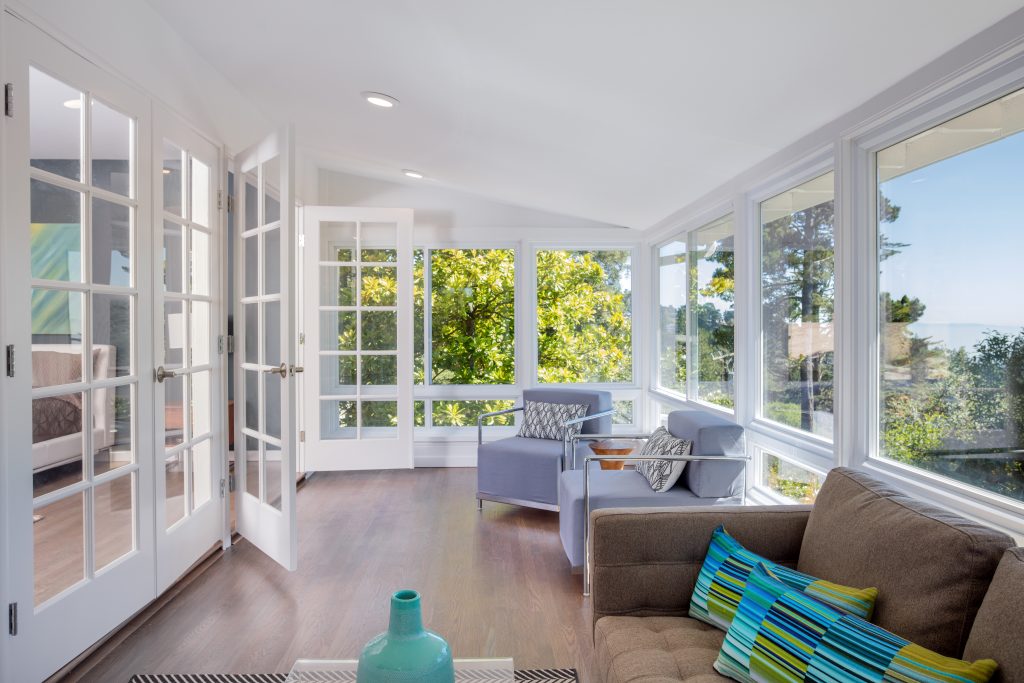Comparison: Fixed Window vs. Single-Hung
A fixed window has glass that doesn’t move. On the other hand, single-hung units consist of two sashes. The top sash always stays in place, but the bottom section slides up and down. Both options provide different advantages:

Expense
The simplicity of fixed glass means that it normally costs less to purchase and install than a single-hung unit of equivalent size. Likewise, repairs are less expensive, and it doesn’t need as much maintenance. It usually only requires cleaning.
Ventilation
A single-hung window allows you to let fresh air enter your home. You can also use a fan or air conditioner. Fixed units don’t give you these options. However, the lack of movable sashes makes them more airtight and helps block traffic noise.
Escape
A disadvantage of fixed glass is that it’s difficult to escape in an emergency. You could shatter it, but this will spread dangerous shards throughout the area. Single-hung units offer an escape route if they’re large enough.
Security
Likewise, it’s more difficult to gain entry through fixed glass. You won’t have to rely on locks or screens to keep intruders at bay. Many thieves prefer not to attract attention by breaking glass.
Light
A fixed window allows more sunlight to enter the room and also provides an obstructed view. There are no sashes, locks or screens between you and the outdoors. You can still use blinds or curtains when there’s too much direct sunlight.
Customization
They don’t have to accommodate movable sashes, so fixed units come in a wider range of shapes and sizes than their single-hung counterparts. For example, you could install several small, octagonal windows in a room.
Basically, fixed glass offers greater security, light exposure and affordability, but single-hung units are far more versatile. If you’d like to benefit from either type, please contact our knowledgeable installers to learn more about home window installation.
